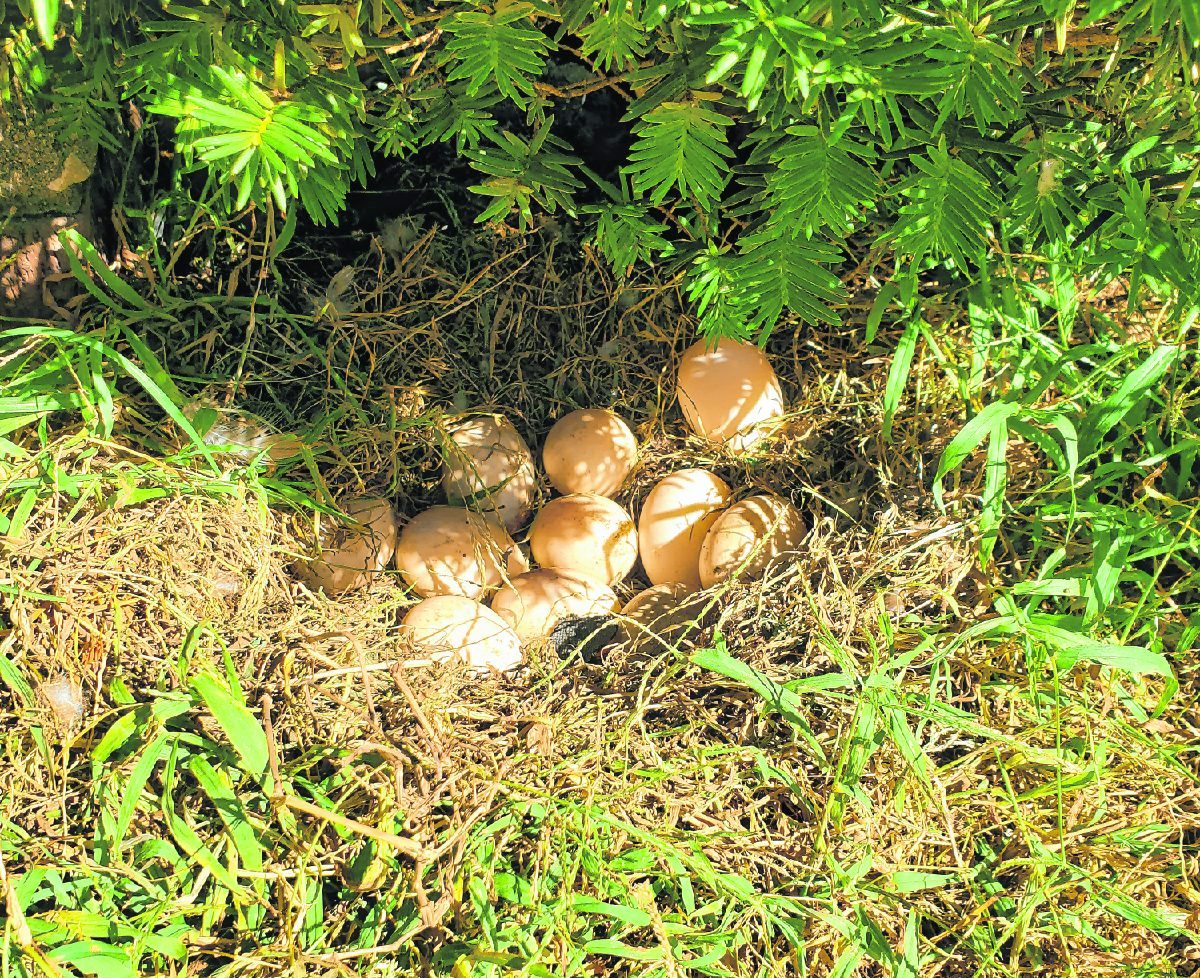
All of the rain recently has made mowing the grass an almost twice a week chore.
Mowing grass out at the farm isn’t just a 15-minute job, either. Running the mower at high gear and not stopping at all, it still takes about three hours to get all of the weeds knocked down.
When I first moved to the country, folks would tease me and say that I need to "get some goats" to handle mowing the grass.
That seemed like a great idea except two things: 1. I didn’t have fence and thus could not safely house goats and 2. goats (apparently) aren’t big grass eaters. So much for furry mowing machines.
[sc:text-divider text-divider-title=”Story continues below gallery” ]
Since the day I purchased my first chickens, I’ve discovered how quickly chickens can decimate an area of green grass if not given enough room to roam.
That first winter with the birds at my former house in Columbus, I remember looking out back at my little 40-by-60-foot plot of grass and staring with both sadness and surprise that four little chickens had picked the ground clean of almost all of the grass, effectively turning what originally was a backyard oasis into barren ground filled with lots of mud.
I’ve determined over the years that chickens seem very similar to hogs in that they love stomping around in mud and really don’t care if they get it on their feathers, always looking for that next scrap of food.
They seem to delight in getting white, fluffy feathers caked with dirt and muck, and then because they’re just that crazy, they step into their nesting boxes, lay an egg and thus cause more work for me, the farmer, to have to do more cleaning on the eggs than is usually necessary. Is it so much to ask for them to wipe their feet, uh, claws, before stepping into the box?
The obvious solution to this predicament is to have fresh pasture for them to roam in and browse, and after some true trial and error, I believe I finally found the proper ratio of chicken to grass to allow the fowl to browse through the field looking for bugs and snipping little green tidbits off the tops of the blades of grass, smacking their beaks with obvious enjoyment.
It makes egg collecting so much more pleasant, too. Clean feathers and thus clean nesting boxes. There is just one catch to allowing birds access to a large field. When it comes time to collecting eggs, not all eggs make it to the nesting box.
A hen lays an egg when the urge happens, and she doesn’t always make it back to the nesting box in time if she’s out in the field grazing for juicy insects.
What happens then? She finds a secret spot in the field and lays her egg right there. That means egg collecting sometimes turns into a real life Easter egg hunt.
Time reasons during the week don’t allow me to search every day for these wayward eggs, but at least twice a week, I’ll walk the pasture checking the bigger tufts of grass to see if these hold a secret stash of eggs, the hen deciding to keep them from my collecting hands.
I believe the largest clutch of eggs I ever found on one of my hunting escapades was 24. How the hen managed to hide these eggs from me for so long was a mystery, but when I found the eggs, I couldn’t use them not knowing how old they were, so the creatures of the field got a great snack of fresh eggs that night.
I still marvel at the cleverness of these birds, learning so much more about them than just a tasty meal and thinking from time to time how these fowl are related to the tyrannosaurus rex dinosaur. Welcome to Jurassic Farm.
Until next time…
Stephanie Strothmann owns Purple Shamrock Farm LLC in rural Seymour. Read her blog at whattheclucker.blogspot.com. Send comments to [email protected].
